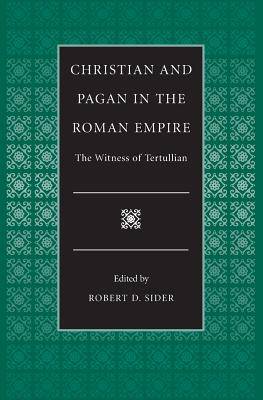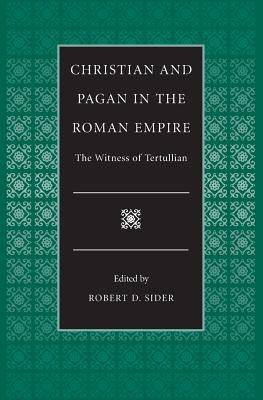
- Retrait gratuit dans votre magasin Club
- 7.000.000 titres dans notre catalogue
- Payer en toute sécurité
- Toujours un magasin près de chez vous
- Retrait gratuit dans votre magasin Club
- 7.000.0000 titres dans notre catalogue
- Payer en toute sécurité
- Toujours un magasin près de chez vous
Christian and Pagan in the Roman Empire The Witness of Tertullian
The Witness of Tertullian
Quintus Septimus Florens Tertullian
32,45 €
+ 64 points
Description
Among the voices that come across the centuries from early Christianity, few speak with sharper accents, or in more highly colored tones, than that of Tertullian. First in the Latin-speaking West to leave a major corpus of writings, Tertullian is also the first in the West to address in both treatise and tract the issues confronted by Christians in their encounter with the surrounding pagan world. Tertullian belonged to an era when Roman imperial power was at its height and paganism could proudly claim the blessings of the widespread Roman civilization. Though it was an officially tolerant world, unofficially it was suspicious of the politically incorrect: challenging social structures was an act of unthinkable bravado. Tertullian took on the challenge. Before his conversion, Tertullian appears to have participated fully in his contemporary pagan culture. A Carthaginian, his education was thoroughly Roman; he was fluent in Latin and Greek, and widely read in literature, philosophy, rhetoric, and medicine. His conversion to Christianity brought to him a radically new vision of the world, while his pagan education provided him with the tools to express that vision with almost unparalleled power. He possessed a logic that penetrated through misty ambiguities to the heart of things; he practiced a formulaic style that sharpened inherent contrasts; and he refined a narrative art that enriched theology with vignettes of the pagan and Christian worlds of his day. Tertullian is a primary source for a modern understanding of the issues that once confronted--and still confront--Christians living in a non-Christian world. Unfortunately, his writings have often been cast aside as too difficult to read. In this volume, Robert D. Sider undertakes a judicious pruning of the original texts and brings a fresh accessibility to the important writings of Tertullian.
Spécifications
Parties prenantes
- Auteur(s) :
- Editeur:
Contenu
- Nombre de pages :
- 200
- Langue:
- Anglais
- Collection :
- Tome:
- n° 2
Caractéristiques
- EAN:
- 9780813210216
- Date de parution :
- 01-09-01
- Format:
- Livre broché
- Format numérique:
- Trade paperback (VS)
- Dimensions :
- 126 mm x 217 mm
- Poids :
- 267 g

Les avis
Nous publions uniquement les avis qui respectent les conditions requises. Consultez nos conditions pour les avis.






